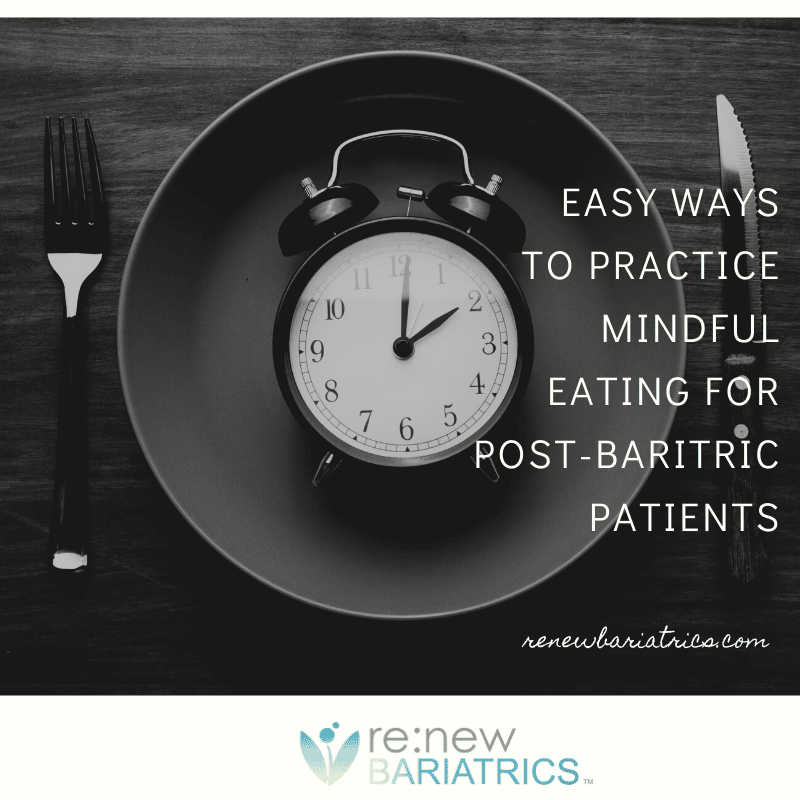Mindful eating is a term that has recently gained a lot of popularity within the weight loss community, but what does “mindful eating” mean?
Mindful eating, also known as mindfulness eating, is intentionally focusing on the body’s organic signals like hunger and satiety.
What is Mindfulness
Mindfulness is Buddhist concept, and when applied to eating has been shown to treat numerous conditions including, eating disorders, obesity, and food-related issues. Mindfulness has also shown to improve the ability to cope with emotions and physical sensations.
Mindful Eating Research: Weight Loss Benefits and More
Mindful eating was used in a behavioral intervention program to help participants lose 21 pounds after 6-months, and maintain the the weight loss after another 3-months.[mfn]https://www.ncbi.nlm.nih.gov/pubmed/22440077/[/mfn]
Mindful Eating study shows that mindful eating helps you lose weight, reduce cortisol, and abdominal fat among overweight and obese women, by changing eating behaviors and reducing stress.[mfn]https://www.ncbi.nlm.nih.gov/pubmed/21977314/[/mfn]
Mindful eating has also shown to reduce weight by 9 pounds during a 6-week program, and maintained the weight loss at 12-week follow-up period.[mfn]https://www.ncbi.nlm.nih.gov/pubmed/21130363[/mfn]
Mindful Eating and Weight Loss
Mindful eating has shown to reduce weight loss and to maintain weight loss, which suggests mindful eating can help instill lasting healthy changes to one’s behavior.
Mindful Eating 101
Mindful Eating has emerged as a new principal to reinforce a healthy diet. In addition to traditional calorie counting and dietary limitations, mindful eating can offer another tool for bariatric patients.
This practice works as a beneficial tool to manage binge eating, assisting in weight control, and preventing “old” or “bad” habits from reoccurring.
Working towards increased awareness of the body’s physical signals that allow discernment between desire and craving.
Aiming to repair our diet can improve our relationship with food. It starts with the fundamentals of mindful eating; appreciation, portion control, heightened senses and experience.
- Eating Slowly will provide a better appreciation of the senses engaged while enjoying a meal such as colors, smell, taste and texture.
- Eating without distractions can strengthen focus. Diversions such as phones, computers, and television can inhibit the ability to feel full. This allows you to become aware, sooner of your physical cues.
- Eating for nourishment optimal health and well-being. Every meal and snack you are aiming to provide your body with energy, nutrition, and balance. Think Protein, Fiber, Healthy Fats and Complex Carbohydrates. Observe the effects food has on your body, and frame of mind (example: fast foods, processed foods, and pre-packaged foods can often lead to feeling sluggish, tired, depressed, unhappy, slow, etc.).
- Plan, Prep and Cook. Getting involved in the preparation of each meal develops a higher understanding of nutrition, portions, ingredients and overall food quality. This enables you to modify unhealthy eating habits such as the consumption of refined sugars, hydrogenated fats and processed foods.
- Listening to physical cues and only eating when true hunger arises. Determine to stop eating, when you feel satisfied. Correctly identifying hunger, can curb snacking which has been shown to lead to diminished weight loss after bariatric surgery.[mfn]https://www.ncbi.nlm.nih.gov/pmc/articles/PMC2780521/[/mfn]

* Remember as a post-bariatric patient, you will only need to eat until a number 5 on the hunger scale. (Satisfied)
You will no longer eat to a number 10 on the hunger scale. (Stuffed or Full)
This is crucial in healing and recovering from bariatric surgery as well as a key to develop a healthy relationship with food and your body. Additionally, hone your weight loss.
Why is this method so important? By increasing your recognition of physical hunger, you’ll be able to distinguish between emotional vs. actual, physical hunger.
If you can acknowledge which one it is, then you can address it accordingly. (Example: emotional hunger = staying away from food and pre-occupying yourself with a useful and productive activity until you are physically hungry. Make use of examples such as; drinking 8-16 ounces of water, taking a walk, removing yourself from temptation, reading a book, doing chores, spending quality time with friends or family, calling a friend for support, etc.)
**By transforming the process of eating and redefining the approach to meals, the negativity that may be associated with eating are replaced with awareness, improved self-control, and elevated confidence.
Mindful Eating For Weight Loss Surgery Patients
The shift in life after bariatric surgery can be radical. A complete overhaul of one’s mental, emotional and physical health are revealed.
Adopting mindful eating methods to modify previous unhealthy eating habits can prove to be effective and less stressful than traditional diets for bariatric patients.
Mindful eating will allow for improvements with behavior and lifestyle change; regarding nutrition, meals and food preparation. This method and mindful eating tips can be applied to post-op bariatric patients.
Mindful Eating Tips after Bariatric Surgery
- Measure and weigh proper portions of food using kitchen utensils such as a food scale, measuring cups and spoons.
- Chew foods slowly and thoroughly to ensure the texture and consistency is safe for swallowing and digesting. Also, to enjoy every bite.
- Put away distractions while preparing, cooking and eating meals.
- Choose foods to maximize nutrition and nourishment for the body.
- Learn to differentiate between emotional hunger vs. physical hunger.
- Only eat when physically hungry.
- Develop and personalize all the above. It may take weeks or months to effectively build Mindful Eating habits into your daily regimen.
Following bariatric surgery, fullness feels different than before. It may come on more rapidly with less volume.
With increased consciousness, post bariatric patients may learn to avoid the physical discomfort and pain of being overfull, as a way of portion control.
Sharpening this new skill, for a person who had unhealthy portion control habits can be unexpected and favorable. This can help guide post bariatric patients to better control thoughts or feelings of wanting to eat everything on their plate, eating until the package is empty, or not knowing how or when to stop eating.
Benefits of Mindful Eating for Bariatric Patients
Embracing mindful eating could help prevent any stretching of your new stomach after gastric sleeve surgery.
Patients can ensure that they are taking the proper precautions to alleviate any pain associated with eating, by controlling the volume, textures, and quality of food choices.
Furthermore, by implementing these patterns, it can establish a strong sense of control and confidence entering your new lifestyle.
- Mindfulness interventions For post-bariatric surgery Disordered eating
- Harvard Health Publishing Harvard Medical School
- Psychology Today: 8 Must-Read Books on Mindful Eating
- BT Bariatric Times; Clinical developments and Metabolic Insights in Total Bariatric Patient Care
- Mindful Eating: The Art of Presence While You Eat


